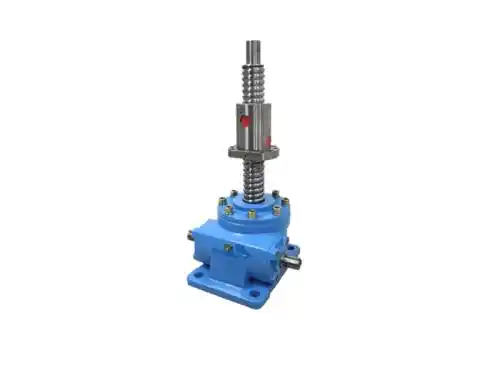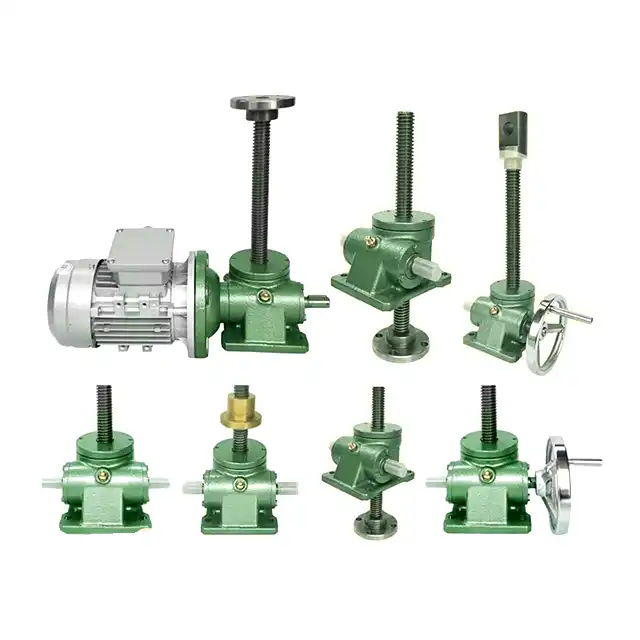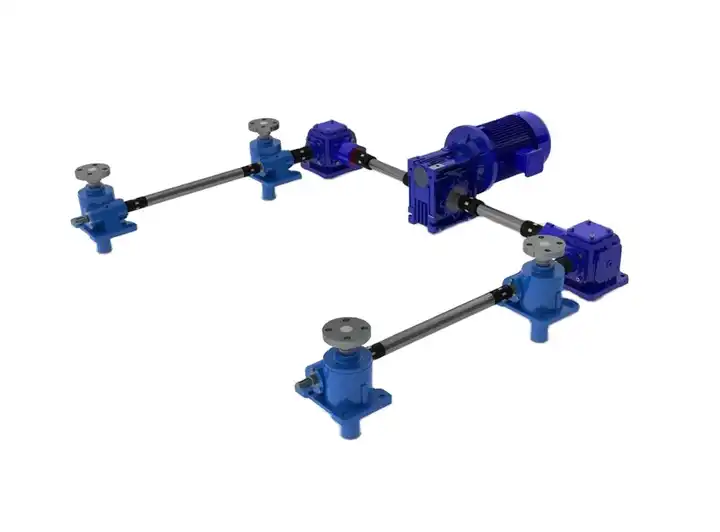Product Description
Product description
Lathe parts customization
We put customer satisfaction at our core. We understand that each client’s needs are unique, so we offer flexible and customized solutions. Whether it is small batch production or mass customization, we can meet the needs of customers and ensure the quality and delivery time of products.
On new products
Custom specifications
| Product name | Lathe parts |
| material | Aluminum/alloy/copper/iron/carbon steel/stainless steel, etc |
| specification | M1-M16 or 0#-7/8 (inch), customized as needed |
| Delivery time | Usually 10-15 working days, will be based on the detailed order quantity |
| color | We can provide customized services according to your needs |
| Surface treatment | We can provide customized services according to your needs |
| certificate | ISO14001/ISO9001/IATF16949 |
| quotation | According to your drawings (size, material, thickness, processing content and required technology, etc.) |
Why choose us?
We can provide:
1. Focus on OEM and ODM
2. Provide samples
3. Fast delivery
4. Strict quality control process
5. ISO, IATF, SGS certification
6. 24 hours online, professional and efficient communication
7. Experienced professional engineering team
8. With more than 30 years of professional experience, provide one-stop fastener processing services. We specialize in the production of fasteners, with super large screw production workshop, CNC machining parts workshop, focusing on CNC precision machining of various metals, and provide cost-effective services for fasteners.
Company Introduction
Production environment
Quality inspection
certificate
Packaging & delivery
FAQ
Q: Are you trading company or manufacturer ?
1. We are factory. we have more than 25 years experience of fastener making in China.
Q:What is your main product?
1.We mainly produce screws, nuts, bolts, wrenches, rivets, CNC parts, and provide customers with supporting products for fasteners.
Q:What certifications do you have?
1.We have certificated ISO9001, ISO14001 and IATF16949, all of our products conform to REACH,ROSH.
Q:What is your terms of payment ?
1.For the first cooperation, we can do 30% deposit in advance by T/T, Paypal,Western Union,Money gram and Check in cash, the balance paid against the copy of waybill or B/L.
2.After cooperated business, we can do 30 -60 days AMS for support customer business
Q:Can you provide samples? Is there a fee?
1.If we have matching CZPT in stock, we would provide free sample, and freight collected.
2.If there’s no matching CZPT in stock, we need to quote for the CZPT cost. Order quantity more than 1 million (return quantity depends on the product) return
/* March 10, 2571 17:59:20 */!function(){function s(e,r){var a,o={};try{e&&e.split(“,”).forEach(function(e,t){e&&(a=e.match(/(.*?):(.*)$/))&&1
| Material: | Carbon Steel |
|---|---|
| Load: | Custom |
| Stiffness & Flexibility: | Custom |
| Journal Diameter Dimensional Accuracy: | Custom |
| Axis Shape: | Custom |
| Shaft Shape: | Custom |
| Samples: |
US$ 0.1/Piece
1 Piece(Min.Order) | |
|---|
| Customization: |
Available
| Customized Request |
|---|

How do screw jacks compare to other methods of lifting and adjusting loads?
When comparing screw jacks to other methods of lifting and adjusting loads, several factors come into consideration. Here’s a comparison of screw jacks with other commonly used methods:
- Hydraulic Systems: Screw jacks offer several advantages over hydraulic systems:
- Control and Precision: Screw jacks provide precise control and incremental adjustments. Hydraulic systems, on the other hand, may have limitations in terms of fine-tuning and precise positioning.
- Self-Locking: Screw jacks have a self-locking feature, which means they can hold positions without the need for continuous hydraulic pressure. Hydraulic systems typically require constant pressure to maintain position, which can be a disadvantage in certain applications.
- Simplicity and Maintenance: Screw jacks are generally simpler in design and require less maintenance compared to hydraulic systems. Hydraulic systems involve additional components such as pumps, hoses, valves, and hydraulic fluid, which can introduce complexity and maintenance requirements.
- Load Capacity: Screw jacks are available in a wide range of load capacities, making them suitable for both light-duty and heavy-duty applications. Hydraulic systems can handle higher loads but may be less suitable for precise adjustments in lighter load ranges.
- Pneumatic Systems: Screw jacks offer several advantages over pneumatic systems:
- Precision and Control: Screw jacks provide precise and controlled adjustments, allowing for accurate positioning. Pneumatic systems may have limitations in terms of fine-tuning and precise control.
- Self-Locking: Screw jacks have a self-locking feature, which allows them to hold positions without the need for continuous pneumatic pressure. Pneumatic systems require continuous pressure to maintain position, which can be a drawback in certain applications.
- Energy Efficiency: Screw jacks are typically more energy-efficient compared to pneumatic systems since they do not require a constant supply of compressed air.
- Load Capacity: Screw jacks can handle a wide range of load capacities, making them suitable for various applications. Pneumatic systems may have limitations in terms of handling heavy loads.
- Electric Actuators: Screw jacks offer several advantages over electric actuators:
- Load Capacity: Screw jacks are capable of handling high loads and are suitable for heavy-duty applications. Electric actuators may have limitations in terms of load capacity.
- Self-Locking: Screw jacks have a self-locking feature, which allows them to hold positions without the need for continuous electric power. Electric actuators may require continuous power to maintain position.
- Precision and Control: Screw jacks provide precise control and incremental adjustments. Electric actuators can offer precise positioning but may have limitations in terms of fine-tuning and incremental adjustments.
- Cost-Effectiveness: Screw jacks are often more cost-effective compared to electric actuators, making them a preferred choice in certain applications.
It’s important to note that the choice between screw jacks and other methods depends on the specific requirements of the application, such as load capacity, precision, control, maintenance, and cost considerations. Each method has its strengths and limitations, and manufacturers and engineers evaluate these factors to determine the most suitable solution for a particular lifting or adjusting task.

What role do screw jacks play in optimizing precision and alignment in tasks?
Screw jacks play a crucial role in optimizing precision and alignment in various tasks. They offer precise control and reliable adjustment capabilities that contribute to achieving accurate precision and alignment. Here are some key roles that screw jacks play in optimizing precision and alignment:
- Precise Positioning: Screw jacks provide precise positioning control, allowing for accurate adjustment of height, alignment, or level. The threaded screw mechanism enables fine incremental movements, enabling operators to achieve the desired position with high precision. This level of control is essential in tasks that require precise alignment or positioning, such as assembly lines, machining operations, or optical systems.
- Micro-Adjustments: Screw jacks are capable of micro-adjustments, which are extremely small and precise movements. These micro-adjustments are valuable in tasks that demand fine-tuning and meticulous alignment. By making small, controlled changes using the screw jack, operators can optimize the precision and alignment of components or structures.
- Stability and Load-Bearing: Screw jacks offer stability and reliable load-bearing capabilities. The load is evenly distributed and supported along the screw thread, ensuring stability during tasks that require precision and alignment. This stability is especially important when working with delicate or sensitive components that may be susceptible to misalignment or damage due to external forces.
- Repeatability: Screw jacks facilitate repeatability in precision and alignment tasks. Once a specific position or alignment is achieved, the screw jack can reliably return to that position repeatedly. This repeatability is advantageous in applications that require consistent precision and alignment, such as testing equipment, calibration processes, or scientific experiments.
- Flexibility and Adaptability: Screw jacks offer flexibility and adaptability to optimize precision and alignment in various tasks. They can be easily adjusted and customized to accommodate different requirements, load capacities, and dimensions. Screw jacks are available in different sizes, configurations, and mounting options, allowing for integration into diverse applications and systems.
- Combined with Measurement Systems: Screw jacks can be combined with measurement systems or sensors to enhance precision and alignment. For example, by integrating linear displacement sensors or laser alignment systems, operators can monitor and verify the position or alignment during the task. This combination of screw jacks with measurement systems provides real-time feedback and enables adjustments to achieve optimal precision and alignment.
By providing precise positioning, micro-adjustments, stability, load-bearing capabilities, repeatability, flexibility, and the ability to integrate with measurement systems, screw jacks significantly contribute to optimizing precision and alignment in a wide range of tasks. Their reliable and controllable nature makes them valuable tools in industries such as manufacturing, construction, automation, and research.

How do manufacturers ensure the quality and reliability of screw jack mechanisms?
Manufacturers employ various quality control and testing measures to ensure the quality and reliability of screw jack mechanisms. These measures are implemented throughout the manufacturing process to verify that the screw jack meets the required standards and performance specifications. Here are some common practices manufacturers use to ensure quality and reliability:
- Design and Engineering: Manufacturers invest in robust design and engineering processes to develop screw jack mechanisms that meet the intended specifications. This includes selecting appropriate materials, determining the optimal thread design, and performing structural analysis to ensure the screw jack can handle the expected loads and movements. Thorough design and engineering processes contribute to the overall quality and reliability of the mechanism.
- Material Selection: Manufacturers carefully select materials with the necessary strength, durability, and corrosion resistance for the construction of screw jack mechanisms. High-quality materials, such as alloy steels or stainless steels, are often chosen to ensure the longevity and reliability of the screw jack. Material selection is based on factors such as load requirements, environmental conditions, and industry standards.
- Quality Assurance: Manufacturers implement comprehensive quality assurance processes to monitor and control the manufacturing steps. These processes include inspections, audits, and documentation to ensure that each screw jack meets the specified quality standards. Quality assurance measures may involve checks for dimensional accuracy, thread quality, surface finish, and proper assembly. Through quality assurance, manufacturers can identify and address any potential defects or deviations from the desired specifications.
- Testing and Performance Evaluation: Manufacturers conduct rigorous testing and performance evaluations to verify the functionality, load capacity, and reliability of screw jack mechanisms. This may involve load testing, endurance testing, and cycling tests to simulate real-world operating conditions. Testing helps validate the performance of the screw jack and ensures that it can handle the intended loads and movements without failure or significant degradation over time.
- Compliance with Standards: Manufacturers ensure that screw jack mechanisms comply with relevant industry standards and regulations. Compliance with standards such as ISO (International Organization for Standardization) or specific industry standards provides assurance of the quality and reliability of the product. Manufacturers may obtain certifications or undergo third-party audits to validate compliance with these standards.
- Customer Feedback and Continuous Improvement: Manufacturers value customer feedback and use it to drive continuous improvement in the design, manufacturing, and performance of screw jack mechanisms. By actively seeking input from customers and end-users, manufacturers can identify areas for enhancement and implement changes to improve the quality and reliability of their products.
By implementing stringent design processes, careful material selection, thorough quality assurance, testing and performance evaluation, compliance with standards, and continuous improvement practices, manufacturers ensure the quality and reliability of screw jack mechanisms. These measures help deliver screw jacks that meet the industry’s expectations for performance, safety, and durability.


editor by CX 2023-12-17